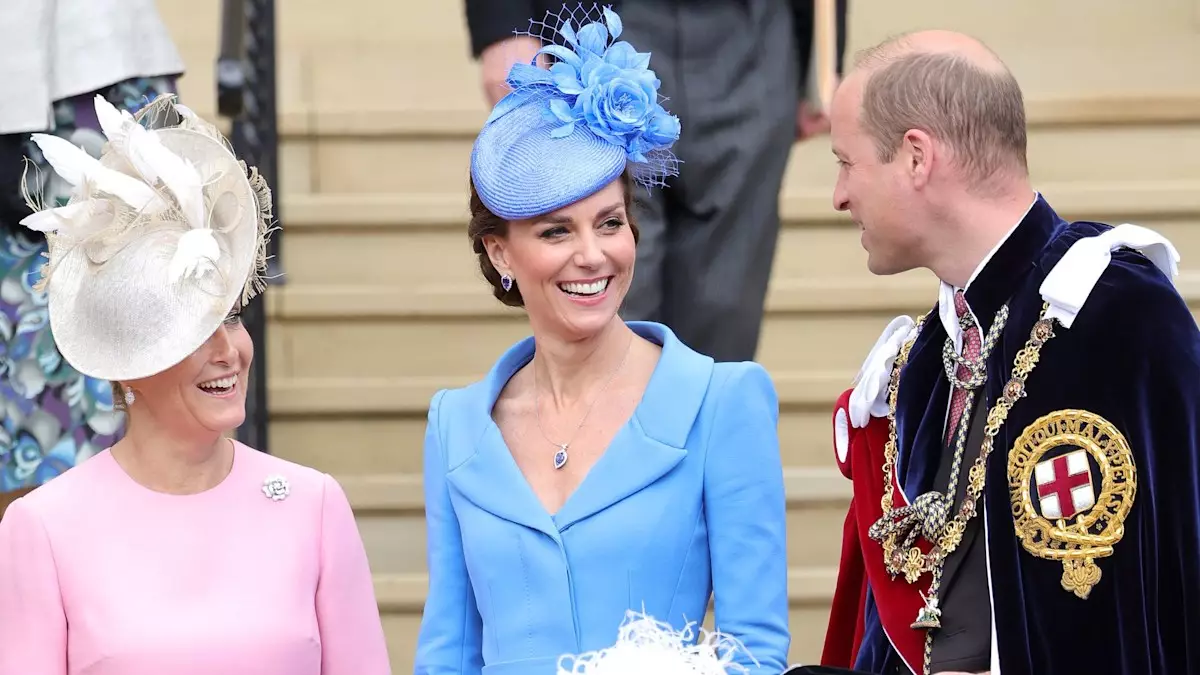Duchess Sophie’s position within the British Royal Family is emblematic of quiet strength and unwavering dedication. While often overshadowed by the more prominently featured Cambridge family, Sophie stands as one of the most industrious and committed royals today. With King Charles III and Queen Camilla naturally at the pinnacle of royal duties, Sophie, alongside Prince William, Princess Catherine, and Princess Anne, operates as a backbone of the monarchy’s public service. What sets her apart is not just the number of engagements she undertakes but the genuine warmth and strategic acumen she brings to her royal responsibilities.
More Than a Figurehead: A Relationship Built on Mutual Respect
The bond between Duchess Sophie and the Princess of Wales is frequently described as sisterly, a characterization that reflects depth beyond public appearances. Their alliance is neither superficial nor orchestrated solely for public consumption; instead, it reflects true affection and shared experience. Both women are parents fiercely protective of their families, navigating the complexities of raising children under the scrutinizing gaze of the royal spotlight. Sophie’s earlier experiences as a mother, particularly amid harrowing personal circumstances such as her life-threatening complications after childbirth, have enabled her to offer invaluable emotional support to the Princess of Wales and others within the family network.
An Evolution Within a Slimmed-Down Monarchy
In the wake of recent shifts—including Prince Harry and Meghan Markle stepping back from royal duties—the monarchy has been streamlined, concentrating responsibilities among a smaller circle of royals. This reorganization presents Duchess Sophie with an opportunity to elevate her public presence further. Her recent duties, including co-engagements with Prince William—most notably at the Royal Cornwall Show—highlight not only her versatility but also an emerging role in supporting her nephew-in-law in his gradual preparation for kingship. Their camaraderie and ease in public forums demonstrate that Sophie can work flexibly in tandem with the more prominent figures of the family without overshadowing them.
Subtle Leadership through Compassion and Composure
What differentiates Sophie from some of her contemporaries is her blend of humility and quiet authority. She is not known for grandiose public statements or ostentatious appearances, but rather for consistency and measured grace. This subtlety is a powerful form of leadership, important during times when the monarchy navigates both traditional expectations and the demands of modern societal sensibilities. She balances ceremonial duties with personal warmth, enhancing public engagement through authentic interactions rather than manufactured pageantry.
The Symbolism in Choice and Presence
Even Sophie’s fashion choices, such as her recent appearance at the Central School of Ballet in a Zimmermann dress paired with signature espadrilles, convey an intentional elegance that merges accessibility with tradition. This style of engagement, showing a regal yet relatable royal, broadens her appeal beyond the formal spheres into cultural and community life. It is a deliberate communication of approachability without compromising the dignity expected of her station.
Implications for the Future of a More Vibrant Monarchy
As Britain’s monarchy faces pressures to redefine itself amidst rapid social change, figures like Duchess Sophie embody an adaptive and empathetic model of royalty. Her cemented relationships within the family and wider society suggest a future where her influence will be increasingly crucial. Her role, complemented by those of the Prince and Princess of Wales and Princess Anne, points to a more streamlined but deeply engaged royal core, capable of both preserving tradition and embracing progress.
In a landscape where public favor hinges heavily on personality as much as protocol, Sophie’s steady presence provides a reassuring glue. Her life experiences, blended with her royal duties, create a model of resilience that not only supports the monarchy internally but resonates with the British public on a more personal level. It’s an understated power, but one that bodes well for the evolving future of the crown.

